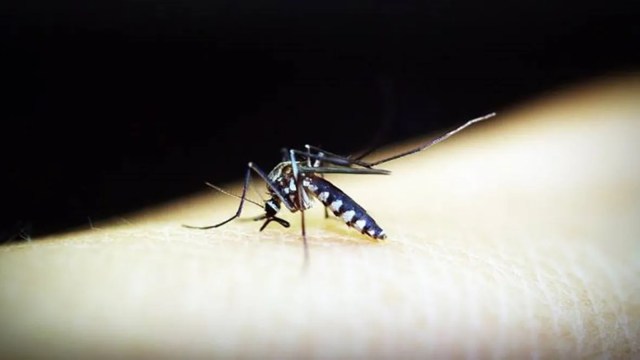Agartala municipality releases larvae-eating fishes in city drains, waterbodies to combat mosquito menace
The Agartala municipal body started the mosquito bio-control project in 2017 in collaboration with the National Vector Borne Disease Control Programme.
 The Agartala municipal body started the mosquito bio-control project in 2017 in collaboration with the National Vector Borne Disease Control Programme. (Representational image)
The Agartala municipal body started the mosquito bio-control project in 2017 in collaboration with the National Vector Borne Disease Control Programme. (Representational image)In an effort to control malaria, dengue, chikungunya and other vector-borne diseases, Tripura Health Department and Agartala Municipal Corporation Wednesday released larvivorous fishes, which feed on insect larvae, in urban waterbodies and sewers.
Speaking to the media at Agartala, Corporator of ward number 13 of Agartala Municipality Goutam Chanda said that the lavivorous fingerlings were released in all the drains of ward number 13. “We appeal to the people not to dump waste materials into the drains since it leads to waterlogging,” said Chanda.
The municipality has been using larvivorous fishes to control mosquitoes in Agartala city over the last few years. Over 15,000 lavivorous fingerlings were released in the city’s sewers in 2018.
The Agartala municipal body started the mosquito bio-control project in 2017 in collaboration with the National Vector Borne Disease Control Programme (NVBDCP). In 2018, the BJP-led government laid stress on having clean sewers and biological control of mosquitoes after it came to power.
Earlier this April, Chief Minister Dr Manik Saha had declared to make Tripura malaria-free by 2027 while speaking at the Asia Pacific Leaders Conclave on Malaria Eradication 2023 in New Delhi.
He had said that his government has adopted a four-point action to check vector-borne diseases like malaria. The four-point action plan includes using vector-control sprays, insecticide-treated mosquito nets, larvivorous fishes to control mosquito and widespread awareness about malaria.
‘Gambusia’ fishes were introduced into the urban ecosystems in many countries of the West as a part of bio-control of disease carrying mosquitoes and flies. Several countries, including Australia and California, freely distribute the fish for control of vector-borne diseases.
The other widely distributed tropical freshwater fishes include ‘Guppy’ and ‘Panchak’ fishes.
Several parts of Tripura are endemic to malaria, dengue and other vector-borne diseases.
There were over 5,000 cases of malaria identified in different hospitals in Tripura in 2017 along with 80 identified cases of dengue and 44 cases of Chikungunya. Ninety-eight patients were found to have been infected with Japanese Encephalitis in 2017.
Prior to that, the state recorded a malaria outbreak in 2014 when nearly 96 people lost their lives. In 2016, a total of 14 deaths were recorded due to malaria.



- 01
- 02
- 03
- 04
- 05




























